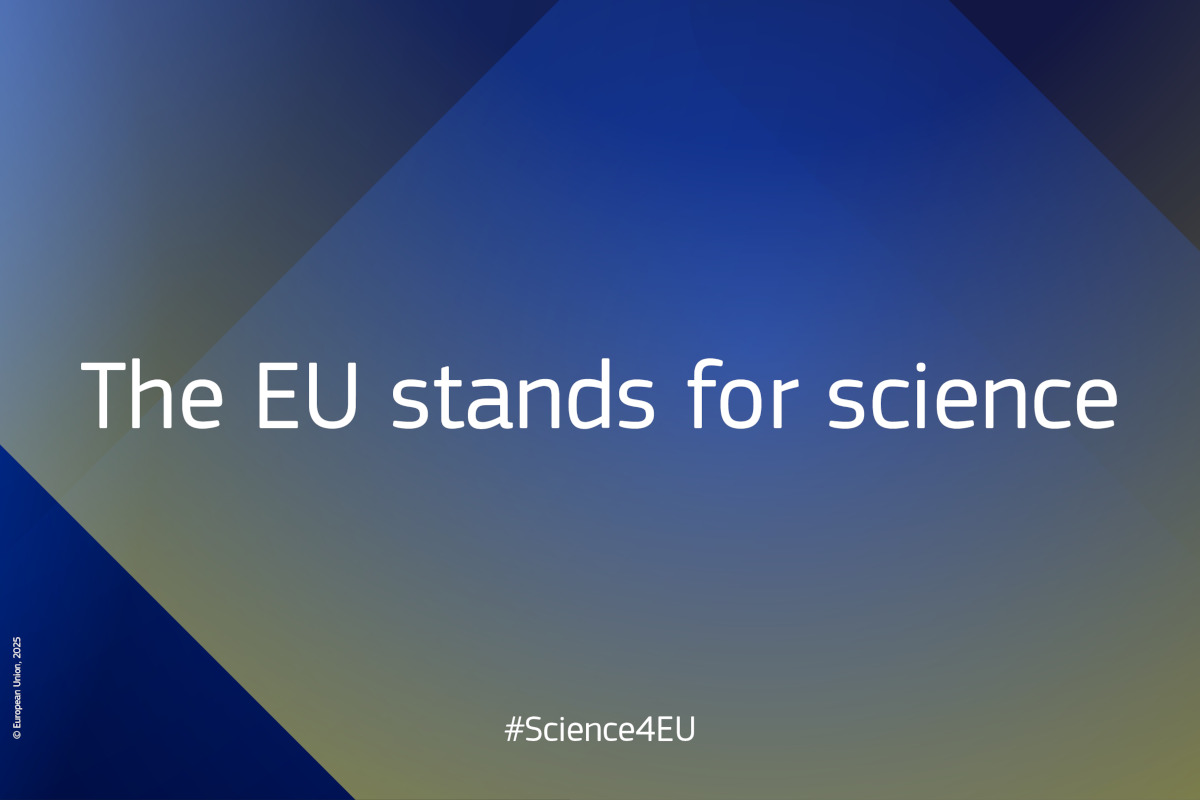While Europe’s green agenda faces new pressures, sustainability leader Sandrine Dixson-Declève outlines why sustainable investment remains vital for economic strength, planetary health and future resilience.
Special series

Science4EU
The Science4EU campaign shows how the EU stands for science. It shines a spotlight on the scientists, researchers, and innovators working with EU support to improve our lives and shape a better future for everyone.
Do you also stand for science?
More stories
Most popular
-
1By Andrew Dunne
-
2By Tom Cassauwers
-
3
-
4
-
5By Michaela Nesvarova
Top videos
Rethinking green investment for Europe’s next chapter: a stakeholder’s vision
23 June 2025
Smarter science: staying one step ahead of the next pandemic
18 June 2025
Past articles
After water, concrete is the most widely used substance on Earth. With applications from housing and industry to coastal defence and infrastructure, concrete and cement are at the cornerstone of life, quite literally.
Climate change is destroying heritage sites across Europe and globally. Ancient historical landmarks could disappear completely unless swift action is taken to protect them from environmental damage, researchers are warning.
From origins in the cool altitudes of the Andes, the potato is not well suited to the extreme temperatures or flooding brought on by climate change. Plant scientists are breeding ‘super-spuds’ able to endure harsher environmental conditions.
The European Union Agency for the Space Programme (EUSPA) was established in 2021 to become the operational arm of the European Union’s space ambitions. That means they manage the commercialisation of applications coming from satellites such as mapping, navigation and science missions. We spoke with Rodrigo da Costa, the executive director about the business of space in Europe and its contribution to the EU Green Deal.
Would you eat more chocolate or less if you thought it was healthful? Or just the same? To mark World Chocolate Day 2022 we're dipping into a delicious project when some of Europe's scientists turned their attention to tasty chocolate treats.
This article first appeared in Horizon Magazine in April 2014.
Prevention and the HPV vaccine is helping to reduce the numbers of women dying with cervical cancer but new portable screening kits and new types of lab tests will improve diagnosis and earlier treatment of the disease.
Aphasia is a devastating diagnosis that affects your ability to speak or understand language. It’s a little-known condition that effects 300 000 Europeans every year and recently made headlines when actor Bruce Willis announced he was diagnosed with it.
Automation and computer-aided designs are seeding the future of home gardens. With the onset of designer gardens as a service and rose-pruning robots, weekends spent toiling in the garden will be more productive and personalised.
Having a big idea may not be enough to change the world – innovation is a commercial process as well as scientific inspiration. Turning research into marketable products is partly a business challenge.
The old joke is that nuclear fusion is always 30 years away. Yet the dream of abundant clean energy is no laughing matter as we meet an ITER researcher to catch up on progress at the reactor facility.
Thanks to the renewables’ boom, the limiting factor of the energy revolution is not power supply as much as power storage these days. Cleaner, greener batteries are needed to charge our cars, ebikes and devices for longer.
Hydrogen is carving out its place in the world of renewable energy. Regional developments like hydrogen valleys and hydrogen islands are serving as blueprints for larger ecosystems to produce and consume this versatile fuel locally.
Uncrewed aircraft responding to fire and medical emergencies will be used to save lives - if digitalised air-traffic control can help them navigate safely in the skies over Europe.
Drought and desertification threatens to degrade land in Europe and around the world. We take a look at some new studies into how drought spreads and deserts develop.
The race is on to reuse waste as energy in the most effective way possible. Combined heat and power is an old idea for saving fuel with a new imperative to slash emissions. Innovative furnaces based on biofuel systems will generate heat and power from waste materials with near-complete efficiency and very low emissions.
By turns admired and reviled, bats are one of the most mysterious mammals alive. Their nocturnal habits and unique adaptations mean that bats' biology still holds many secrets. It is possible that bats may hold the key to understanding diabetes.
The most significant changes can be sudden, not gradual, if the circumstances are right. Horizon Magazine listened in on a recent discussion between leading climate change scientists on the role of 'tipping points' in the climate transition.
With around 70% of the planet's surface covered by ocean, the EU Mission to restore our ocean and waters focuses on positive actions to restore marine ecosystems, eliminate pollution, and make our blue economy carbon neutral and circular. To mark World Ocean Day on 8 June, Horizon Magazine takes a dive into two collaborative projects working to deliver on the first of these ambitious goals.
Traditional energy production in advanced economies involves the importation of large amounts of oil and gas from a small number of suppliers. Renewable energy systems under new community ownership structures are being pioneered all over the Europe. The goal is to develop cheap, clean and secure energy by bringing power generation closer to the people who will use it.
In less than 30 years Europe must transform society and industry from an energy supply largely based on hydrocarbons, which contribute to climate change, towards a clean energy system based on renewables and low-emissions energy generation.






























